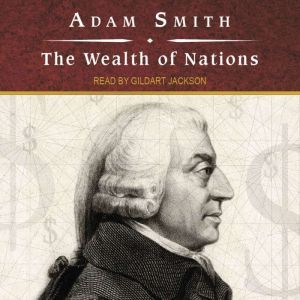

The Wealth of Nations
Author: Adam Smith
Narrator: Gildart Jackson
Unabridged: 36 hr 44 min
Format: Digital Audiobook Download
Publisher: Tantor Media
Published: 12/24/2010
Categories: Nonfiction, Business & Economics
Includes:
Bonus Material
![]()
Synopsis
Book I. Of the Causes of Improvement in the Productive Power of Labour
Book II. Of the Nature, Accumulation, and Employment of Stock Introduction
Book III. Of the Different Progress of Opulence in Different Nations
Book IV. Of Systems of Political Economy
Book V. Of the Revenue of the Sovereign or Commonwealth
Taken together, these books form a giant leap forward in the field of economics. A product of the "Age of Enlightenment," The Wealth of Nations is a must for all who wish to gain a better understanding of the principles upon which all modern capitalistic economies have been founded and the process of wealth creation that is engendered by those principles.


